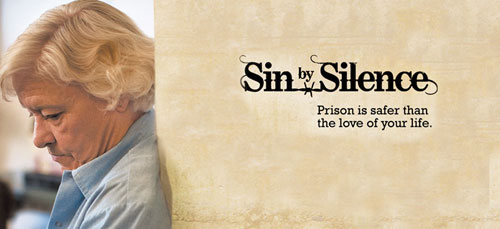We all have biases, it’s undeniable. Some of us are vocal, while others hold back. And whether we admit it or not, we are all guilty of making assumptions about others without understanding the nuances of their lives. Many would say it is unfair of us to make these judgments, but it happens because we are human.
We are all human. We all have a story. We all should have the freedom to tell it. That’s the idea behind the screening of “Sin by Silence” at 8 p.m. Tuesday, April 22, in Gibble Auditorium. Student Wellness and S.A.G.E. (Students Advocating for Gender Equality) are holding this event to help give voices to an often silenced population, survivors of intimate partner violence (IPV). This documentary follows the lives of women imprisoned at the California Institution for Women for killing their abusers and provides audiences with a glimpse into the real-life experiences of survivors of IPV. The film offers viewers the chance to assess their biases against this population.
…we can’t begin to address the issue if people are not well-informed about what it is or how it impacts the victims.”
Introspection and assessment of one’s own judgments is important and often beneficial, but why else should we understand the stories of these women? Dr. Rita Shah, assistant professor of sociology, provided her insight. “It is important for students to see this film and, thus, be educated on domestic violence, because we can’t begin to address the issue if people are not well-informed about what it is or how it impacts the victims.”
Shah noted that IPV takes many forms, including physical violence as well as emotional, psychological and financial abuse, making it too difficult to understand its complexity. And even when physical violence is involved, you might not be able to tell. “People assume that if there aren’t physical signs of abuse, it isn’t happening,” said Amanda Cheetham, health educator for Student Wellness. “
People need to understand domestic violence because, at some point, they may know someone who is being abused. And survivors need to know they aren’t alone,” said Cheetham.
The screening is free and open to the public. Copies of the film will be available for sale afterward.
For more information about domestic violence, visit the website of the National Coalition Against Domestic Violence (NCADV) or the Pennsylvania Coalition Against Domestic Violence (PCADV). If you are a student who is a survivor of IPV or you are currently involved in an abusive relationship, there are people who are able to help you. Counselors as well as campus chaplains are willing to provide you with the support you need. Additionally, you can contact the National Domestic Violence Hotline 24/7 at 1-800-799-SAFE (7233).


